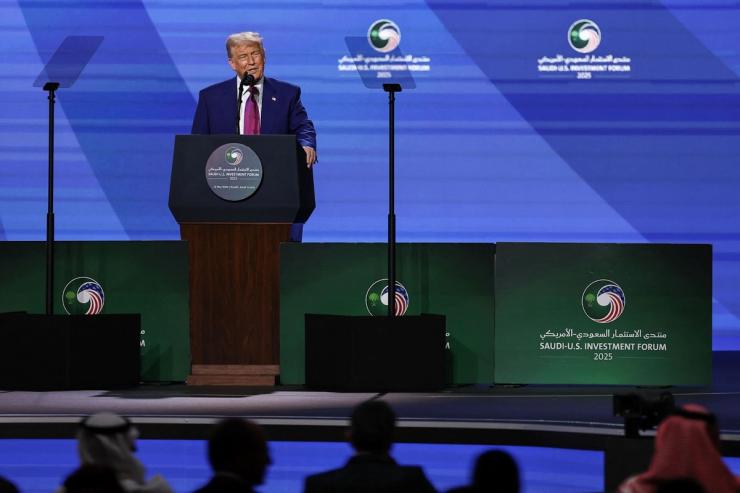Mohammed’s view
Beyond the major deals, effusive praise for Saudi Arabia’s crown prince, and the exquisite pageantry in Riyadh, it was US President Donald Trump’s speech to a rapt audience in the kingdom that underscored a new reality: The Gulf is undergoing a generational transformation. And the US, far from disengaging or pivoting away, is solidifying its security and economic ties for decades to come.
The last two presidential addresses to the Arab world — Barack Obama’s in Cairo in 2009 and Trump’s in Riyadh eight years ago — focused primarily on terrorism. Obama’s speech also included a nod toward democratic values, which his administration ultimately failed to fully back when the Middle East’s people rose up against autocrats.
On Tuesday, Trump charted a different course. He rejected the policies of “nation-builders, neo-cons, or liberal non-profits” who, he said, had failed in Afghanistan and Iraq. Instead, he gave credit and agency to those who created the “gleaming marvels of Riyadh and Abu Dhabi.” While remaining firm on Iran — which he contrasted with the rest of the Gulf for prioritizing terrorism over economic development — he offered Tehran a path toward a nuclear deal with the US and a more prosperous future.
Trump’s optimistic tone echoed that of Crown Prince Mohammed bin Salman. “After so many decades of conflict, finally it is within our grasp to reach the future that generations before us could only dream about — a land of peace, safety, harmony, opportunity, innovation, and achievement right here in the Middle East,” Trump said.
Eight years ago, Trump’s visit carried overtones of a clash with Islam, having followed the so-called “Muslim ban” that restricted travel to the US from several Muslim-majority countries. The broad emphasis on “terrorism” in 2017 was used as a rationale by Bahrain, Egypt, Saudi Arabia, and the UAE to sever ties with Qatar, accusing Doha of supporting extremists. This time, Trump will visit Qatar before heading on to the UAE — a signal of realigned interests.
Whether this new approach endures is unclear. But what is clear is that Trump — affectionately called “Abu Ivanka” by so many Saudis I met in Riyadh that I lost count — has won over “hearts and minds,” and even sparked spontaneous celebrations in the literal “Arab street,” which is a surprising reaction to a US president’s speech.
Notable
- Trump heads to Qatar on the second leg of his Gulf tour, with controversy brewing over his plans to accept Doha’s gift of a luxury aircraft.
- Some of the projects the Trump administration touted during the Saudi trip were already in the works before the president took office, The New York Times noted.


